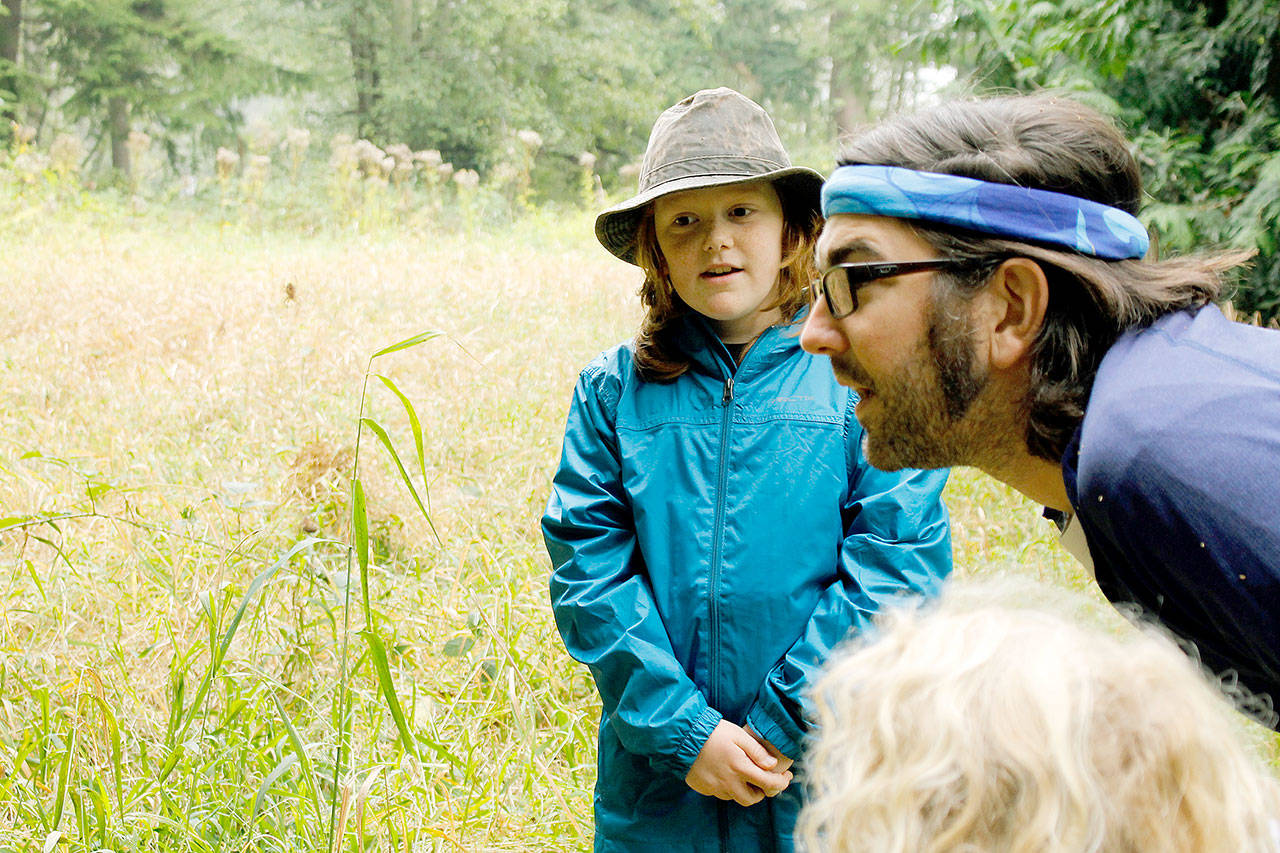Online learning in schools has become the norm because of the pandemic, but for some students it may not be a “one size fits all” solution.
Before the new school year began, parents who had children enrolled in the South Whidbey School District were looking for a way to homeschool their kids, but they didn’t want to take the leap without consulting a certified teacher.
South Whidbey parents wanting a curriculum less dependent on Zoom and more involved with the natural world approached the school district, and a pilot program called the South Whidbey Parent Partnership Program, or SWAP, was created.
South Whidbey Elementary School Principal Susie Richards said the new program involves parents and teachers working together to identify the standards that need to be met at the grade level.
“That can be as simple as using old-fashioned textbooks or it can be as creative as families going to the beach and engaging with activities that meet those standards in hands-on ways,” Richards said.
SWAP has provided flexibility for parents, while still allowing them to use resources from the school district. Students and parents have weekly check-ins with a teacher who is ensuring that standards are being met.
The program is currently open to students in kindergarten through sixth grade. It has 96 kids enrolled.
Though still in its beginning phases, Richards is hopeful it might continue beyond the 2020-2021 school year.
Michelle Scandalis is one of the parents who helped develop SWAP. Before COVID, her boys had both been attending South Whidbey Academy, the school district’s alternative program.
Scandalis said she has been pleased with how Richards and the school district’s administration listened to the parents who came forward with the idea to do remote learning in a different way that didn’t revolve around online activities.
“I have a new opinion of the public school system,” Scandalis said. “They’re doing a great job.”
The new program has even attracted students who weren’t previously enrolled in the public school district. Some families who had their kids in the Whidbey Island Waldorf School, which has suspended its programming this year for grades 1-8, decided to sign up for SWAP too.
Scandalis predicts more families might make the choice to switch over to the pilot program because of “Zoom burnout.” Richards said families will be able to make the change over to SWAP starting Oct. 15.
Scandalis has enjoyed what she describes as “finding our own rhythm” in teaching, and avoiding the regular back-to-school stress was also a plus.
Her sons are often joined by a small group of other kids.
The families have all agreed on the same quarantine practices, which allows the kids to socialize safely.
“There’s been a real surge, or awakening, in families that are trying to create opportunities as a group,” Scandalis said.
Jake and Aja Stewart, two other parents instrumental in the development of SWAP, said it made sense to continue sticking with the public school system, rather than doing their own thing.
“We are fans of public education and we want to support public education,” Jake said.
Aja agreed that as a family, the Stewarts were interested in exploring the national trend of “pods,” small social bubbles in which the people involved interact closely with only each other. Their girls often learn alongside Scandalis’ sons and two other children from a third family.
The problem, as Aja described it, was that many families were “podding” without knowing how to homeschool.
But in the SWAP program, a certified educator acts as a go-between, translating the state requirements to the families who are choosing alternative learning.
“The teacher is amazing because she knows how the state needs to capture that, but the parents don’t,” Aja said. “It’s like a team effort.”
A nature-based curriculum is also a draw. The pod her kids are in goes on nature walks together, identifying plants, insects and fungi. They count rocks and tree branches. Her oldest daughter built her own desk. The Stewarts also own a farm, which has its own plethora of educational opportunities.
“Alternative learning options are really what young families are seeking out,” Aja said.
Her husband agreed.
“I think South Whidbey is a natural fit for where this is going,” Jake said.
Aja added that she hopes SWAP will be a long-term program that can be offered alongside the programs offered by other alternative schools on the island, such as the Whidbey Island Waldorf School and the Calyx Community Arts School.
“It made sense to go to the school district instead for alternative learning,” Aja said, pointing out that resources can still be received from the district with the SWAP program.
Jake said he sees the pilot program as an opportunity to leverage the talents, skills and resources of the community.
“At least for me, I see it as a component for the future of public education, where there’s a sort of hybrid where you can have a parent-teacher partnership,” he said.



